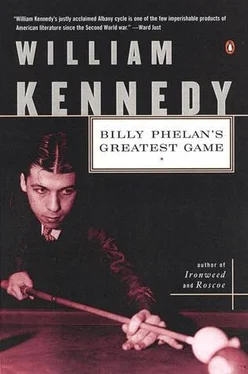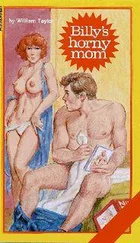In 1935, when the A.L.P. was founded to gain another line for Roosevelt’s second run, Jake spearheaded the party locally and opened headquarters in his father’s old tailor shop on Sheridan Avenue, just off North Pearl Street. Old Socialists and laboring men, who wanted nothing to do with the Democrats but liked F.D.R.’s New Deal, made the new party their own, and by 1936 the Albany branch had one hundred and eighty-four members. Patsy McCall tolerated it because it was a stepchild of the Democratic Party, even though he had no use for Roosevelt, the snob son of a bitch. The Catholic Church grew restless with the new party, however, as its ranks fattened with anti-Franco radicals and socialist intellectuals who spat on God. What’s more, it promised the kind of growth that one day could be a power balance in local elections, and so Patsy decided it was time to pull the plug.
The word went out to the aldermen and ward leaders of the city’s nineteen wards that some sixty voters in each ward should change their enrollment from Democrat to American Labor. As enrolled members, they would then be entitled to vote at A.L.P. meetings, and would vote as Patsy told them to. Jake Berman’s few hundred regulars would be dwarfed by the influx, and Jake’s chairmanship negated. In time, all in good time, Patsy’s majority, of which Chickie Phelan was now one, would elect a new party chairman.
The garmentless tailor’s dummy that had been in Berman’s tailor shop for as long as Martin could remember was still visible behind the Lehman-for-Governor posters taped to the old store window. The shop had stood empty for several years after the death of old Ben Berman, a socialist since the turn of the century and a leader in the New York City garment industry’s labor struggle until strikebreakers fractured his skull. He came to Albany to put his life and his head back together and eventually opened this shop, just off Pearl Street at the edge of an old Irish slum, Sheridan Hollow, where Lackey Quinlan once advertised in the paper to rent a house with running water, and curious applicants found he had built his shack over a narrow spot in the old Canal Street creek. This was the running water, and in it Lackey kept his goose and his gander.
Ben Berman worked as a tailor in the neighborhood, though his clients came from all parts of the city, until he lost most of his eyesight and could no longer sew. He died soon after that, and then his son Jacob rented the shop to another tailor, who ran it for several years. But the new man was inferior to Ben Berman with the needle, and the trade fell away. It remained for the A.L.P. to reopen the shop, and now it looked as if its days were again numbered.
Martin pushed open the door, remembering when Ben Berman made suits and coats for his own father, those days when the Daughertys lived under the money tree. Martin could vividly recall Edward Daugherty standing in this room trying on a tan, speckled suit with knickers and a belt in the back, mottled buttons, and a brown, nonmatching vest. Martin mused again on how he had inherited none of his father’s foppery, never owned a tailor-made suit or coat, lived off the rack, satisfied with ready-made. A woman Martin did not know was coming down the inside stairs as he entered. She looked about forty, a matron in style. She was weeping and her hat looked crooked to Martin.
“Jake upstairs?”
She nodded, sniffled, wiped an eye. Martin yearned to console her with gentle fondling.
“Can I help you?” he asked her.
She laughed once and shook her head, then went out. Martin climbed the old stairs and found Jake Berman leaning back in a swivel chair, hands behind head, feet propped up on an open rolltop desk. Jake had a thick gray mustache and wore his hair long, like a serious musician. The elbow was out of his gray sweater, and he was tieless. The desk dominated the room, two rooms really, with the adjoining wall knocked out. Folding chairs cluttered both rooms, and at a long table two men younger than Jake sat tallying numbers on pink pads. The phone on Jake’s desk was off the hook.
“Why don’t you answer your phone?” Martin asked.
“I’m too busy,” Jake said. He moved only his lips and eyes to say that. “What can I do for you?”
“I heard the results.”
“You did. And did they surprise you?”
“Quite a heavy enrollment. I was told twelve hundred plus. Is that accurate?”
“Your information is as good as mine. Better. You get yours from McCall headquarters.”
“I got mine from the city desk.”
“Same thing really, isn’t it, Martin?”
“I wouldn’t say so. The McCalls do have some support there.”
“Some?”
“I for one don’t see myself a total McCaller.”
“Yes, you write some risky things now and then, Martin. You’re quite an independent-minded man in your way But I didn’t see you or anybody else reporting about the plan to take us over. Didn’t anybody down on that reactionary rag know about it?”
“Did you?”
“I knew this morning,” said Jake. “I knew when I saw it happening. Fat old Irishmen who loathe us, drunken bums from the gutter, little German hausfraus enrolling with us. Up until then, the subversion was a well-kept secret.”
Jake’s face was battered, his eyes asymmetric, one lower than the other, his mustache trimmed too high on one side. In anger, his lower lip tightened to the left. His face was as off balance as his father’s battered and dusty samovar, which sat behind him on a table, a fractured sculpture with spigot, one handle, and one leg broken. Another fractured face for Martin in a matter of hours: Charlie when Scotty died; Patsy and Matt this morning; and now Jake, victim of the McCalls. Interlocking trouble. Binding ironies. Martin felt sympathy for them all, had a fondness for them all, gave allegiance to none. Yet, now he was being accused, for the second time in half an hour, of being in league with the McCall machine. And was he not? Oh, duplicitous man, are you not?
“I came for a statement, Jake. Do you have one?”
“Very brief. May the McCalls be boiled in dead men’s piss.”
A young man at the tabulating table, bald at twenty-five, threw down his pencil and stood up. “And you can tell the Irish in this town to go fuck a duck.”
“That’s two unprintable statements,” said Martin. “Shall we try for three?”
“Always a joke, Martin. Everything is comic to you.”
“Some things are comic, Jake. When a man tells me with high seriousness to go fuck a duck, even though I’m only half Irish, I’m amused somewhere.”
The young man, in shirtsleeves, and with Ben Franklin spectacles poised halfway down his nose, came to the desk, hovering over Martin. “It’s the religion, isn’t it?” he said. “Political Jews stand as an affront to the McCalls and their priests, priests no better than the fascist-dog Catholics who kiss the boots of Franco and Mussolini.”
Martin made a squiggle on his notepad.
“Quote it about the fascists,” said the young man.
“Do you think the McCalls are fascists, Jake?” Martin asked.
“I know a Jew who’s been with them almost since the beginning,” said Jake. “He works for a few pennies more than he started for in nineteen twenty-two, sixteen years of penurious loyalty and he never asked for a raise, or threatened to quit over money. ‘If I do,’ he once said to me, ‘you know what they’ll tell me? The same they told Levy, the accountant. Quit, then, you Jew fuck.’ He is a man in fear, a man without spirit.”
“People who don’t promote Jews, are they fascists, or are they anti-Semites?”
“The same thing. The fascists exist because of all those good people, like those sheep who enrolled with us today, all full of passive hate, waiting for the catalyst to activate it.”
Читать дальше












